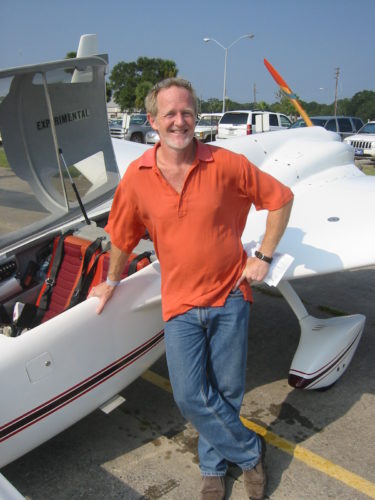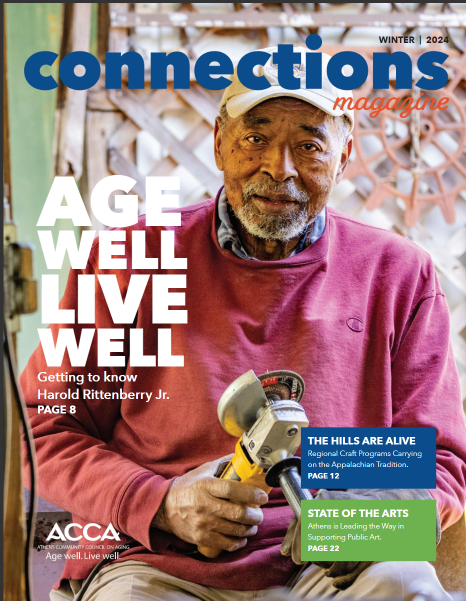Jon Jefferson
You’re best known for the bestselling crime-fiction novels known as “The Body Farm Novels,” written under the pen name Jefferson Bass in collaboration with Dr. Bill Bass, founder of The Body Farm. What led to your interest in forensic science, and how did that lead to your collaboration?
Before I turned novelist, I was a television documentary maker, with a keen interest in science. In 2002, I got the opportunity to write and produce two National Geographic documentaries about the University of Tennessee’s Anthropology Research Facility, better known as the Body Farm. It’s a macabre, fascinating facility where scientists study what happens to us after death, when those things happen, and how the timing is affected by factors like temperature, humidity, and the setting where the body decays. That research helps solve real-world crimes, by allowing forensic scientists to pinpoint when a murder has occurred.
In the course of making those National Geographic documentaries, I became friends with Bill Bass, who’s not just the Body Farm’s founder but also an internationally renowned bone detective. Bill asked if I’d help write a memoir about his career, including a number of murder cases he’d helped solve. That sounded like a fascinating project – and indeed it was – and it made me realize that a fictional hero modeled after Bill would be a fun and interesting character. Bill was dubious at first, but when the first of those novels hit #18 on the New York Times bestseller list, he decided that we were onto something. At this point we’ve collaborated on ten novels, and six of them made the Times bestseller list. We’re still hoping for a movie or TV deal; I’ve always been convinced that this would make a terrific series.

Prior to the Body Farm Novels, what were some of your favorite career highlights?
I spent some interesting years as a science writer at Oak Ridge National Laboratory, one of the nation’s biggest research labs. There I wrote articles and made videos about cutting-edge work in materials science, energy efficiency, genetics, nuclear safety, and other high-tech fields.
The videos I made in Oak Ridge led to the chance to make TV documentaries, which was a blast. Besides my Nat Geo shows, I wrote and produced shows for the History Channel, The Learning Channel, and A&E, the Arts & Entertainment Network. For A&E, I mostly made what I jokingly refer to as “travel porn” – shows about famous old luxury hotels in glamorous locations: The Banff Springs Hotel in the Canadian Rockies. The Hotel de Paris in Monaco. The Ritz in Paris – I just happened to be on the shoot there when Princess Diana was killed in a car wreck. I also wrote and produced a two-hour A&E special about the Vatican – “The Vatican Revealed” – which the network would rebroadcast every time Pope John Paul II got sick. They got a lot of mileage out of that show for years!
For The History Channel, I made shows about World War II ships and planes, about coal barons and copper tycoons, about the Colorado gold rush and Rocky Mountain pioneers, about endangered historic landmarks such as the battlefield in Gettysburg, Pennsylvania, where commercial development was threatening to destroy the sites peaceful, reflective setting. And for The Learning Channel, I wrote the script for a two-hour “Modern Marvels” episode about Disney World.
Every TV show I made was like a crash course on a fascinating topic. Writing for television helped free me up to write novels, in a couple of ways. For one thing, it honed my understanding of the narrative arc that makes for a good story. For another, it taught me to write fast, and to write “good enough.” Writing for television freed me from the perfectionism that paralyzes so many aspiring writers.
Your latest novel, Wave of Terror, was released in early 2018. It’s your first novel that’s not part of the Body Farm series. Tell us about it.
The idea for Wave of Terror came to me years before any of the other novels. In 2000, I saw a fascinating, terrifying documentary on the BBC. The show featured the work of a pair of scientists – a U.S. geophysicist and a U.K. earth scientist – who warned that America’s entire eastern seaboard was at risk from an unprecedented natural disaster. Their research showed that a major earthquake in the Canary Islands, off the northwest coast of Africa, could cause a massive landslide on the island of La Palma … and that the landslide could send an immense tsunami, a wave 100 feet high, racing across the Atlantic to strike our East Coast.
Not long after I learned of the possibility of this tsunami, Al Qaeda terrorists toppled the World Trade Towers on 9/11, and U.S. intelligence officials warned us to expect a second wave of attacks – “spectacular” attacks, one CIA official warned, possibly even bigger than 9/11. I realized that if terrorists could tip the scales on La Palma – if they could weaken the island’s fault line and trigger a major landslide – they could unleash the worst disaster the world had ever seen.
It took a lot of years – and two research trips to La Palma – to write a novel based on that scenario. But I’m pleased with the book, and judging by the ratings on Amazon and Goodreads, readers like it, too.
Do you have any other exciting projects on the horizon?
I’m starting work on a movie script for Wave of Terror – from the beginning, I’ve thought the story had great film potential – and I’m working on a couple of other screenplays. I’m thinking about a new series of crime novels, this one set in Athens. And I have at least a dozen ideas for other novels; the hard part is choosing just one, and then making the time to write it.
How did you come to reside in Athens, GA and what activities do you find a city most commonly known for the college students has to offer for older adults?
My wife and I moved to Athens in 2015, when she took a faculty job in UGA’s School of Social Work. We love Athens – it’s small, charming, and friendly. We live in Boulevard, an easy walk to plenty of good restaurants and bars, and we’re close enough to UGA that my wife enjoys walking to campus most days.
One of the many charms of Athens is the rich music scene – we hear far more live music here than ever before, of all sorts. The arts scene is great, too. One particular favorite of ours is the WUGA “Artist in Residence” series, a monthly showcase for local painters, sculptors, and other artists. The great thing about “Artist in Residence” is that the programs aren’t staged in galleries, but in the homes and studios of the artists themselves. Hearing them discuss their works in the settings where they produce them – studios brimming with works in all stages of progress – is fascinating and inspiring.
And I’m a huge fan of Sandy Creek Nature Center. My favorite exercise is running the wonderful boardwalks of Cook’s Trail!
What do you think the key is to living well and aging well?
Dunno – I’ll get back to you on that once I start to age!
Seriously? Staying engaged is crucial. I’m lucky – I can keep writing as long as my brain keeps working, so I might never retire. But my basic advice is the same for people of any age: Keep active, busy, and interested – in life, in books and music, in people. Watch less TV and read more books. Get off your backside and swim in the stream of life. Exercise often – every day, ideally – to the best of your body’s ability. Volunteer for a worthy cause, such as Habitat or Project Safe, or mentor a public-school student who needs kindness, attention, and a good role model. The more of yourself you give to life, the more life gives back!








